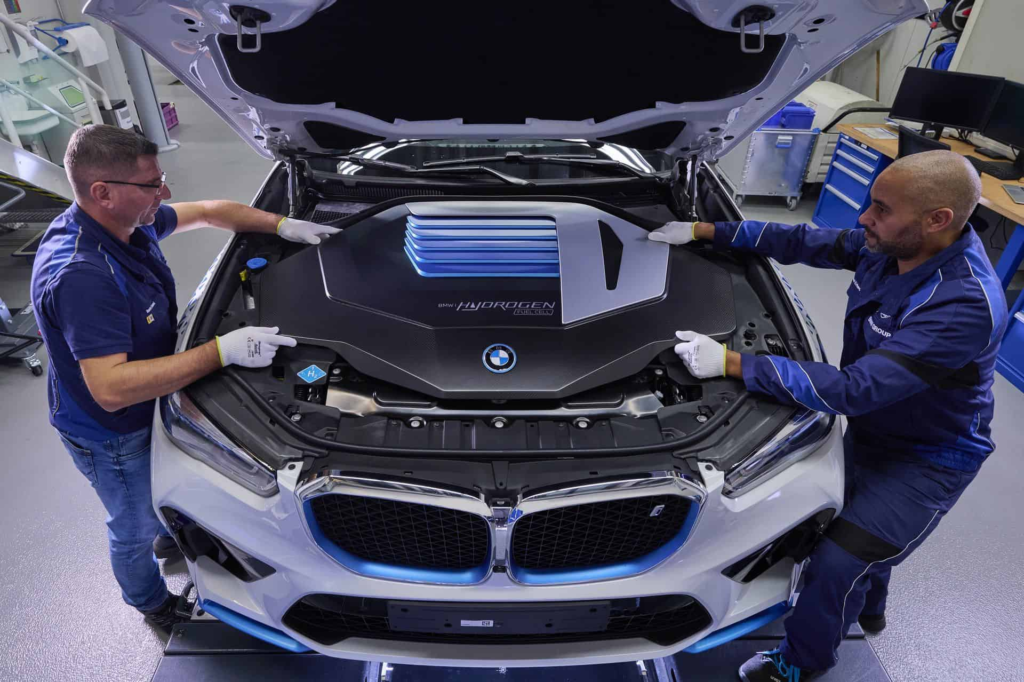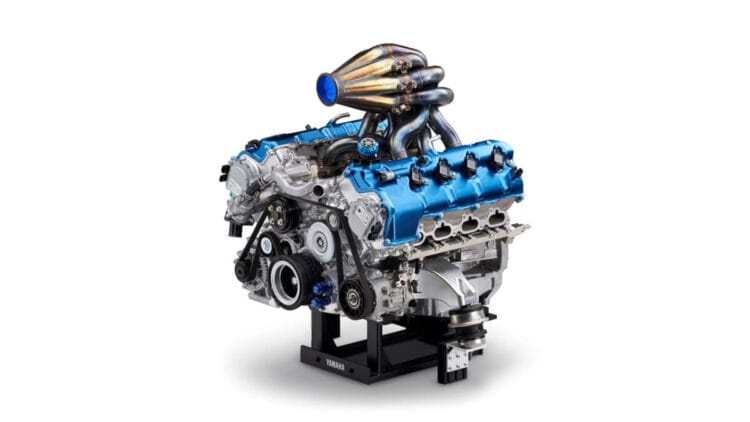Game Over for EVs? Introducing the Non-Polluting Combustion Engine
Boasting an extraordinary power output of 175 kW and the ability to generate 440 HP, all while emitting nothing but water vapor.

In the realm of automotive innovation, a seismic shift is underway, challenging the status quo of traditional gasoline and diesel engines. The emergence of non-polluting combustion engines and hydrogen power signals a new era of sustainable mobility, promising to reshape the way we drive and the environmental impact of our vehicles.
Yamaha's Breakthrough in Non-Polluting Combustion Engines
Yamaha has emerged as a pioneer in the automotive industry with its breakthrough in non-polluting combustion engines. Renowned for its history of innovative advancements, the company's latest creation, an ultrathin hydrogen fuel cell, has captivated the industry. Boasting an extraordinary power output of 175 kW and the ability to generate 440 HP, all while emitting nothing but water vapor, Yamaha's technology signifies a monumental leap forward in both environmental sustainability and energy efficiency. This innovation not only showcases Yamaha's commitment to pushing the boundaries of automotive engineering but also highlights the transformative potential of hydrogen power in revolutionizing the way we drive.

In the midst of an automotive landscape increasingly shaped by the ascendance of electric vehicles (EVs), Yamaha stands as a beacon of innovation with its revolutionary V8 combustion engine. Renowned for its pioneering spirit in automotive technology, Yamaha has shattered expectations with this groundbreaking creation. Contrary to the prevailing narrative, which often emphasizes the shift towards electric propulsion, Yamaha's V8 engine offers a compelling and fuel-efficient alternative. With a commitment to delivering power and performance synonymous with traditional internal combustion engines, Yamaha's innovation underscores the potential for sustainable mobility without compromising on driving experience. This bold move not only challenges industry norms but also signifies Yamaha's dedication to driving environmental progress through cutting-edge engineering.
Leveraging Hydrogen Technology with Toyota
Central to the groundbreaking advancements of Yamaha's revolutionary engine is its strategic collaboration with Toyota, tapping into the latter's extensive expertise in hydrogen technology. This synergistic partnership has culminated in the development of a prototype engine that transcends traditional constraints, heralding a new era of cleaner and more sustainable transportation. Boasting a displacement of five liters and an impressive output of 442 horsepower, this engine exemplifies a paradigm shift in automotive engineering. Through this collaboration, Yamaha and Toyota are poised to reshape the future of mobility, offering innovative solutions that prioritize environmental stewardship without compromising on performance.
At the heart of Yamaha's engine lies an unparalleled level of precision engineering, exemplified by its distinct personality embodied in the exhaust manifolds. What distinguishes Yamaha's engine is its meticulous design, ensuring that the resulting water from combustion travels equidistantly from each cylinder at precisely the same velocity. This unprecedented level of precision represents a feat previously deemed unattainable, showcasing Yamaha's unwavering commitment to excellence and innovation in the pursuit of a sustainable future. Such meticulous attention to detail not only sets Yamaha apart but also underscores the company's dedication to pushing the boundaries of engineering in the quest for environmental sustainability.
HySE Partnership

Yamaha's breakthrough in automotive innovation transcends the boundaries of individual companies, signaling a larger paradigm shift towards collaborative efforts for sustainability within the automotive industry.
The establishment of the HySE partnership, which includes industry giants like Kawasaki, Yamaha, Suzuki, and Honda, underscores a collective dedication to driving forward clean and sustainable propulsion technology. This alliance reflects a shared commitment to address the pressing environmental challenges facing the automotive sector, pooling together expertise, resources, and ingenuity to accelerate the development and adoption of eco-friendly solutions. By fostering collaboration among industry leaders, the HySE partnership represents a pivotal step towards realizing a greener and more sustainable future for transportation.
The future of mobility is being shaped by the transformative potential of hydrogen power and non-polluting combustion engines, heralding a new era of sustainability in transportation. These technologies offer more than just a cleaner alternative to traditional gasoline and diesel engines; they represent a fundamental shift in how we approach commuting and reducing our carbon footprint. With an unprecedented range of over 1,000 miles, vehicles powered by hydrogen fuel cells hold the promise of revolutionizing long-distance travel, offering unparalleled convenience and environmental sustainability. As we embrace these innovations, we pave the way for a greener and more sustainable future, where transportation is not just a means of getting from point A to point B, but a catalyst for positive change in our communities and the world at large.
The emergence of non-polluting combustion engines and hydrogen power represents a watershed moment in the history of transportation. With Yamaha's groundbreaking innovations leading the charge, the automotive industry is poised for a radical transformation, one that promises to redefine the way we think about driving and the environmental impact of our vehicles. As we look towards a future powered by clean energy, the journey towards sustainability begins with a single revolution on the road.





